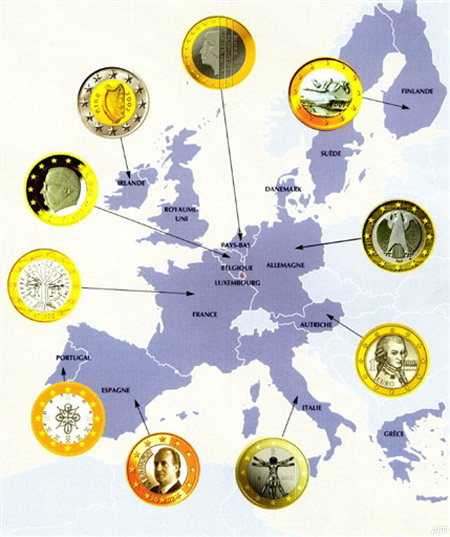International Fixed-Income Market Transactions: Euromarkets
Financial-market activity used to occurs entirely within a single country, denominated in given country’s currency. However, as investors buy currencies promising to offer greater returns and as borrowers scour the planet for the cheapest money, a growing share of the financial market activity now goes beyond national boundaries.
The resulting international money market possesses two segments. In one scenario transaction will be arranged in a foreign country in that country’s currency. In another, investors and borrowers execute these transactions in a currency other than that of the country where they take place. The former are simply called foreign transactions, whereas the latter are known as Euromarket transactions - however, no sharp distinction exists between the two any more.


Balance of Payments
A system of recording all of a country's economic transactions with the rest of the world over a period of one year.
How The Euromarkets Evolved
It has been a century-old practice to use the money of one country to do business in another. Offshore dealings like that usually aimed to avoid taxes, regulation or confiscation.
The name Euromarket was first used to refer to the acceptance of offshore deposits in 1957, in the middle of the cold war, when Moscow Narodny Bank resolved transferring its American currency deposits out of the U.S. to prevent them from being confiscated.
The Soviets transferred their dollars from New York to the French Eurobank and soon after all dollar deposited in European banks came to be referred to as Eurodollars.
This transferred American currency created a new financial market resulting from the Bretton Woods system of fixed exchange rates, around which the post-war non-communist economy of the West revolved.
Gold standard was still an integral part of this system as countries with balance-of-payments deficit had to settle the imbalance in gold reserves to their creditors.
The theory was the diminished gold reserves would inspire the country’s central bank to decrease the money supply thus slowing the economy down and reducing demand for imports, which would in turn bring the balance of payments back into equilibrium.


Security
A document indicating ownership or creditorship; a stock certificate or bond.
Stock Certificate
A certificate establishing ownership of a stated number of shares in a corporation's stock.
Bond
A certificate of debt issued by a government or corporation guaranteeing payment of the original investment plus interest by a specified future date.
The Counterproductive Interest Equalization Tax
In reality, America had been running a persistent balance-of-payments deficit by the end of the '50s and the U.S. gold reserves were dwindling down. Foreigners were issuing large numbers of securities in America and handing over the proceeds for foreign currency to be used at home. This placed even more pressure on U.S. gold stocks. The US government executed a set of policies, including the infamous Interest Equalisation Tax enacted in 1964. This tax was imposed on stocks issued by Europeans claiming 15% of the interests from Americans with the aim of decreasing capital outflows.
Although the tax met its short-term objectives as the "Yankee bond market" for foreigners to sell dollar-denominated bonds rapidly crumbled, investment bankers turned around and started selling dollar-denominated bonds in London insuring the securities would not be taxed by the U.S. With the Interest Equalisation Tax further extended to bank loans in 1965, banks moved dollar-based international lending to London as well. By the time the Interest Equalisation Tax was done away with in 1974, the Euromarket had already become a significant segment of the international financial markets.


Medium Term Note
A corporate note continuously offered by a company to investors through a dealer usually paid back in 5 to 10 years.
Short Term Commercial Paper
An unsecured, short-term debt instrument issued by a corporation, typically for the financing of accounts receivable, inventories and meeting short-term liabilities. Paid back in less than 270 days.

International Money Market Activity Today
One shouldn't look at the international market as an exchange or a group of products. It's a decentralised system wherein currencies kept abroad are constantly reloaned without converting to another country's currency.
Most of these Euromarket transactions are actual bank loans to clients or very short-term loans among banks. On the other hand, the securities markets constitute a huge and growing share of international financial activity.
There are three main types of International instruments: bonds, medium-term notes and short-term commercial paper. The US dollar is only one of the currencies used in the Euromarket along with yen, Swiss francs, New Zealand dollars and other freely convertible currencies. However, when the single European currency, the euro, was established in 1999, it quickly took over the role of most important vehicle for issuance of international securities.
When a borrower issues bonds in a foreign currency, it doesn't automatically follows that they need that currency to fund investments. A lot of borrowers will borrow in the currency that promises the best interest rates at a give future date, only to obtain the desired currency on foreign-exchange markets at a later date.
The term Euromarket is less often used today, since lending in a currency other than that of the borrower or lender has now become commonplace.








